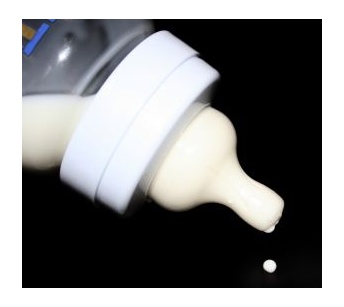 With all of the news coming from China about tainted baby formula, you might be wondering about the safety of infant formula in the United States or Europe. How safe is it? Let’s have a discussion.
With all of the news coming from China about tainted baby formula, you might be wondering about the safety of infant formula in the United States or Europe. How safe is it? Let’s have a discussion.
First, in the way of a disclaimer, I am big believer in providing a baby exclusively with breast milk. I personally feel that it is the best way to feed a baby and also the safest way to feed a baby, and that most women could and should breast feed their infants without much exception. I also believe that parents should have a choice to decide on formula, no matter what their circumstances.
Okay, that said, there are a few points I want to make about formula safety. First, in countries such as the United States, infant formula is highly regulated. It all has to meet a certain standard of nutrition and safety. Even store brand and discount formulas need to comply. While they may not have designer ingredients, such as DHA (which occurs naturally in breast milk and is believed to promote brain development and eye health), neither should they have anything that is proven harmful. Avoid any “foreign” brands or homemade formula to reduce your risk of harm to your baby.
Formula, being a commercial product, always contains the risk of tampering or contamination, just as does other prepackaged food products from Tylenol to spinach.
There has been some talk about the harm that certain chemicals found in plastics might do to infants and children. Many formula cans are lined with these plastics, and the chemicals have been shown to seep into the formula. You can reduce the risk of harm to your baby by choosing ready-made formula in glass bottles or powdered formula, and using BPA-free baby bottles and storage containers.
Finally, when using formula (or pumped breast milk), you want to make sure that you don’t introduce bacteria into the bottle. Wash your hands, sterilize bottles, nipples and equipment, boil water and offer fresh formula at each feeding.
Click here for more articles by Mary Ann Romans.
Related Posts:
Dealing with Old Fashioned Baby Advice
One Breast Gives More Milk than the Other: Is This Normal?

